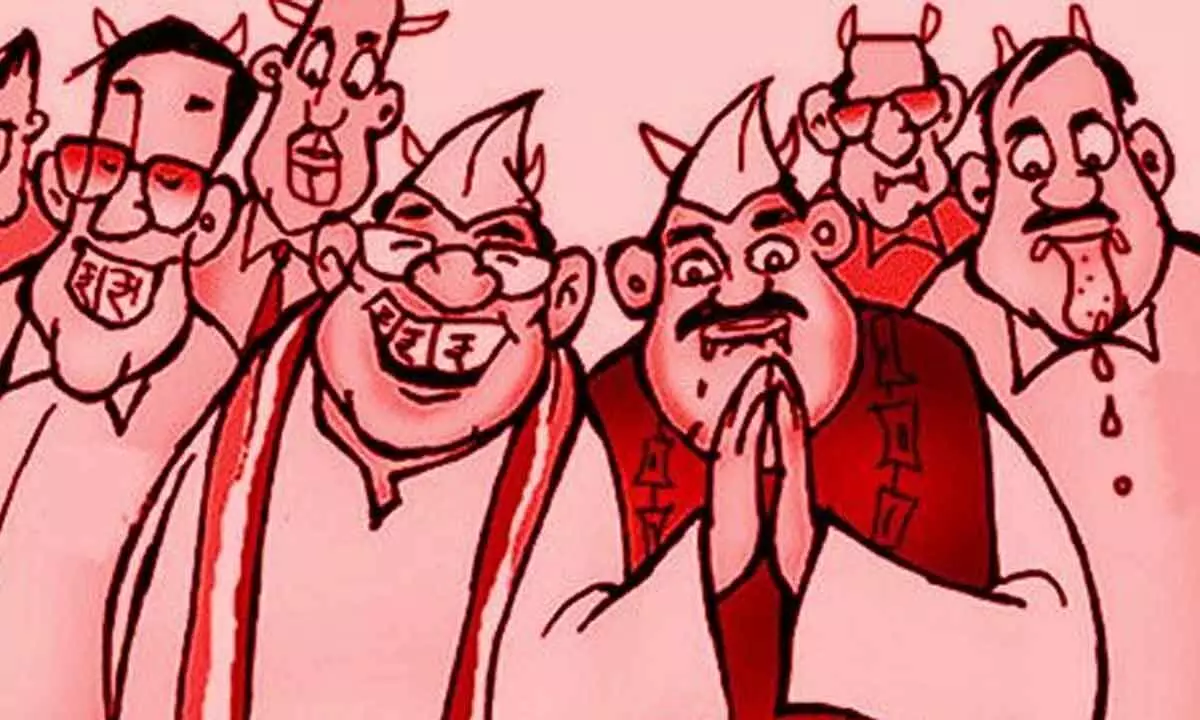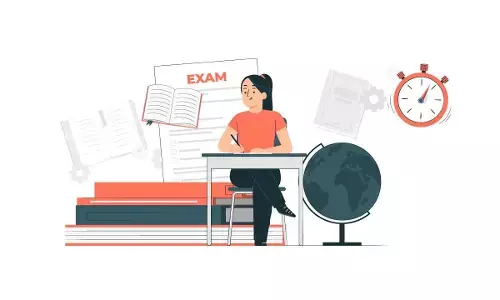Whither cleansing of body politic?

Every party vows to rid the country of many evils if they come to power. But after whiling away for five years, all they do is dole out more promises of freebies to keep the voters on their side. Never mind, if the freebies put more burden on the already groaning fiscal systems. Genuine taxpayers end up bearing the burden of all their imprudent promises. They even try to fix rival party leaders, harass them by foisting cases on the eve of elections. They try to manage systems to delay justice. All that they do or can do is prolong the trials and never get to prove the charges against the opposition
What does India need 75 years after Independence? Has our democracy matured? Have our politicians matured? Has our political system matured? Has the nature of politics matured? Are matured (in terms of thinking, not age) politicians entering Parliament and legislatures? Is there passion to take the country forward among the lawmakers of all parties? Have the people matured enough to assess their leaders and exercise their franchise?
These questions should have been the crux of the various questionnaire handed out to the people by various survey organisations during poll time. But, unfortunately, they are solely focused on which party would get how many seats. Money and muscle power, vindictive politics, misuse of official machinery, foisting of false cases on the eve of elections, physical attacks have all become the order of the day for which all political parties, national and regional, have to share the blame equally.
It pains to hear some leaders say that the democracy in the country needs to mature. We claim we are in Amrit Kal. We boast that the country has completed 75 years of Independence and yet the leaders say our democracy has not matured. Well, who should be blamed for it?
During this Amrit Kal, the leaders should sit at a lonely place amidst serene ambience and ponder over who is responsible besides the causes, if they think that the Indian democracy has not matured. The leaders cannot just put the blame on the people for they should remember the maxim, “Yatha Raja Tatha Praja” (As the rulers, so the people).
If the rulers in last 75 years did not mature, how can democracy mature? Elections in India are mostly based on polarisation of votes based on caste, religion, money power and muscle power. Successive governments and political parties and the top leaders, who are giving sermons about clean government, federalism, increased pace of development and are criticising nepotism, corruption and Parivarvad, need to answer why they failed to curb corruption in the country. Why are they still playing caste card during elections?
It is not enough if the topmost boss of the political executive is clean or honest. What about the system? Is it at least 50 percent corruption-free? Certainly not. Even digitalisation of many services has failed to reduce corruption. Kickbacks in many projects continue to be an accepted norm and still during elections, every party and leaders talk of clean government and corruption free services. It is just like a cat which closes its eyes while drinking milk and thinks that no one is observing it.
If one wants to get correction carried in birth certificate in the global city of Hyderabad there are agents who surround you and demand Rs 4k for a work that costs Rs 150. If you refuse, your work will get inordinately denied. In Rajasthan, we have seen ED officials getting caught for taking bribe. There are allegations of corruption against some of the top leaders including Delhi Chief Minister and some former MPs in the alleged Delhi liquor scam. There are also allegations against some CMs against whom several cases are pending in courts for about a decade and a half with no significant progress.
Every party vows to rid the country of many evils if they come to power. But after whiling away for five years, all they do is dole out more promises of freebies to keep the voters on their side. Never mind, if the freebies put more burden on the already groaning fiscal systems. Genuine tax payers end up bearing the burden of all their imprudent promises. They even try to fix rival party leaders, harass them by foisting cases on the eve of elections. They even try to manage systems to delay justice. All that they do or can do is prolong the trials and never get to prove the charges against the opposition.
What is amusing is that the ruling parties at the Centre do not ensure speedy probe into any allegation. Let us take for example the fodder scam involving former Bihar Chief Minister Lalu Prasad Yadav. Although the scandal broke out in 1996, there does not seem any closure in sight. Issue is still alive. We are seeing several twists and turns in the Delhi liquor scam since 2021. Sometimes it appears the probe agencies have speeded up the probe. Suddenly, a lull in the probe is witnessed. It may be some time before any development is seen. For example, the ED had summoned Delhi Chief Minister Arvind Kejriwal in the Delhi Excise policy case.
He refused to appear before it. If you see the timeline, in April this year, Kejriwal was questioned for nearly nine hours by the CBI over the alleged scam. During the interrogation, in which he was asked about 56 questions, he denied the charges and termed the entire case “fabricated”. In its preliminary complaint filed in a Delhi court in January last year, the agency said that Kejriwal allegedly spoke in a video call with one of the main accused, Sameer Mahendru. In its prosecution complaint, the ED had referred to a statement allegedly recorded by Mahendru, in which he claimed that Nair had told him that “the new excise policy was a brainchild of Kejriwal”.
Kejriwal asked the investigation officer to recall the “vague and motivated summons”, which are “unsustainable in law”. The ED is unlikely to agree and it will issue a fresh notice to him in the coming days. They can continue to issue notices to Kejriwal until he joins the investigation.
There are some more examples where probe agencies like CBI could not even meet the accused in Andhra Pradesh despite waiting for three days. Still the Centre blinks. If a common man refuses to appear in a police station, he is immediately arrested, and police style interrogation follows. But in high profile cases, progress in such cases moves at snail’s pace. Unless such tendencies change, one cannot expect democracy to mature.
In the latest case of the arrest of former Andhra Pradesh Chief Minister N Chandrababu Naidu, it took about 52 days for the courts to grant temporary bail on health grounds and the CID argued that it wants to directly monitor every movement of Naidu, which amounts to violation of fundamental rights of an individual. It is a different matter that the court turned down such a proposal.
This being the situation, it sounds funny to hear nuggets from leaders that democracy must mature. All that they say, “If voted, we will end corruption, we will give you direct cash benefit without bothering about the revenue resources or the debt burden on the people.” This drama has been continuing for last 75 years since no party wants to cleanse the body politic and no party is genuinely interested in making the democracy mature and usher in a healthy nation.
What is equally disturbing is that the bureaucracy, too, has allowed the political executive to dominate them and make them dance to the tunes of the government. There was a time when the bureaucracy used to guide the government, but now things are moving in reverse direction. As an optimist, one can hope that things will change but then it is a very tall order and I have
serious doubts if one can see a matured democracy at least by the time the country celebrates 100 years of country’s Independence.











